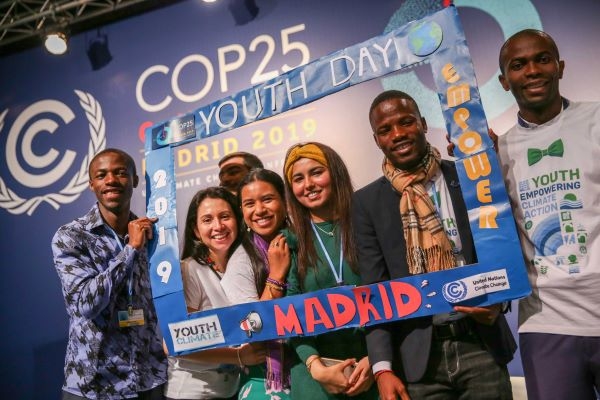COVID-19 has changed everything. But if we take the right steps and trust science, a lot of good can happen.
This year was supposed to be a turning point. The window to ramp up climate ambition, protect nature, and drive down emissions was open like never before. Now, the spread of the coronavirus disease has changed everything, including the international environmental agenda.
Related topics: Can climate talks regain momentum in 2020? – The Climate-Conflict Connection – Non-party actions will hold the key
The arcane world of face-to-face negotiations has largely ground to a halt. The timid signals of private financing finally turning green have been overwhelmed by the worst global economic meltdown in more than 30 years. The kinds of public meetings and demonstrations that gave Greta Thunberg and millions of others a voice are now banned. The attention of political leaders has now—rightly—shifted to saving lives from the global pandemic.
And yet there are ways in which, if we get it right, this crisis could not only reinforce the 2020 environmental agenda but give it a badly needed boost.
SCIENTISTS ARE IN THE SPOTLIGHT—LET’S KEEP THEM HERE
First, science and the opinions of experts are suddenly being given their true value. Politicians and business leaders are yielding the microphone and the formulation of policy advice to chief health officials. In the face of national emergencies, few are playing politics anymore with people’s lives, and those who do are being treated with well-deserved derision. We can hope that, once COVID-19 subsides, those scientists who warned of the public health, economic, and ecological consequences of global warming and the rapid loss of the planet’s biodiversity will be heeded.
We have the chance to turn a new round of stimulus spending “green” by focusing funds on actions that create employment, advance a just transition, address climate and biodiversity priorities, and help achieve the Sustainable Development Goals.
Second, we have the chance to turn a new round of stimulus spending “green” by focusing funds on actions that create employment, advance a just transition, address climate and biodiversity priorities, and help achieve the Sustainable Development Goals.
THE TIME FOR STRATEGIC SPENDING TOWARD A LOW-CARBON FUTURE IS NOW
It has long been said that meeting these public policy priorities would take an injection of trillions of dollars in public funding. Now that we are injecting trillions, we have a once-in-a-lifetime opportunity to ensure we fund the transition to a sustainable future while relaunching the economy. A significant proportion of this emergency funding ought to focus on a new generation of green investments, from expanding net-zero carbon energy and transport systems to increasing and funding protected areas and forging green food systems.
The third lesson is that we can redesign a global trading system that works within the natural order. It is likely that the virus—like so many zoonotic diseases—jumped from animal to man as a result of disturbed natural ecosystems and wildlife trade. The announcement by China and the European Union that they would shut down trade in wild animal species is long overdue. Yet the global pandemic will need to trigger even broader rethinking and a shift in priorities, so trade policy spends as much time mapping risks and halting trade in products and services that put millions at risk as pulling down barriers to trade. This could include restricting trade in carbon-intensive goods, plastics, waste, and other materials. The Amazonian forest fires of 2019 were ecological smoking guns for many global supply chains, including palm oil, timber, beef, and soy.
We can redesign a global trading system that works within the natural order
The pandemic also demonstrates that people and their individual and community actions matter. Rather than leaving mitigation and containment responses to others—other communities, other experts, other countries—families and communities have a direct way to help “flatten the curve.”
THE ROLE OF CONCERNED CITIZENS CAN NO LONGER BE IGNORED
This lesson lies at the heart of sustainability. Our future will be determined by the flights and trips we avoid, the household consumer goods we choose to purchase, the green electricity we use, and the zero waste actions we adopt. That will drive real change at scale.
A final lesson is about risk. This pandemic has shown that, when faced with immediate and acute health risks, people will respond. Yet, while many jurisdictions and cities declared a climate emergency, there is little evidence that responses looked much different from business-as-usual.
Perhaps now it will be different. With COP 26 delayed until early 2021 and postponements or cancelations of many other meetings and negotiations, the real test won’t be new agreements, new goals, new promises. The real test will be the actions of concerned people who trust science and want to do their share.
About the author: Mark Halle and Scott Vaughan are Senior Fellows at IISD
EDITOR’S NOTE: The opinions expressed here by Impakter.com columnists are their own, not those of Impakter.com. Photo Credit: IISD











